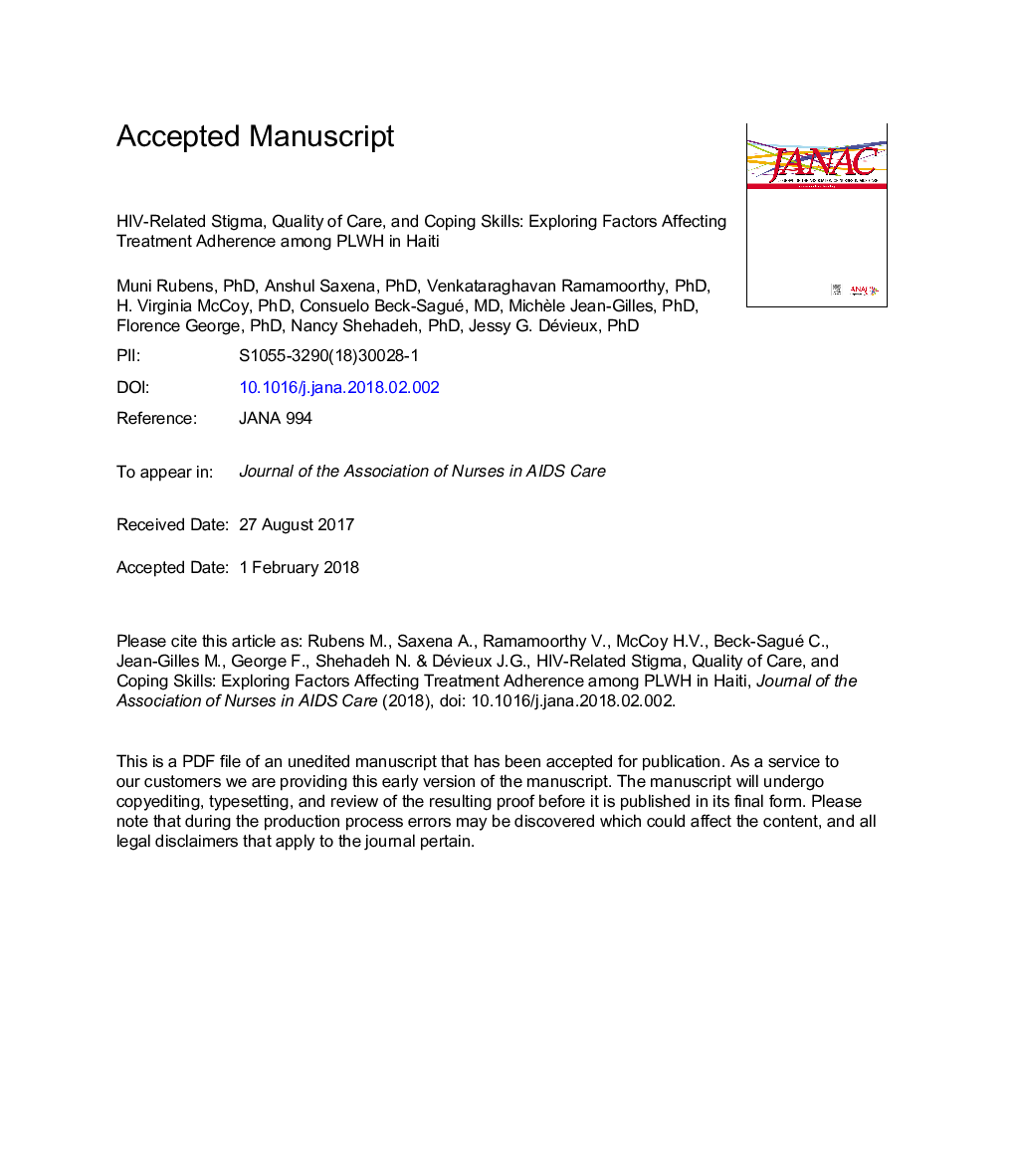| Article ID | Journal | Published Year | Pages | File Type |
|---|---|---|---|---|
| 8572407 | Journal of the Association of Nurses in AIDS Care | 2018 | 28 Pages |
Abstract
Stigma is a primary barrier to care and support for people living with HIV (PLWH). We explored relationships between HIV-related stigma and treatment adherence and the effects of psychological and structural factors on these relationships. HIV treatment adherence, stigma, and coping strategies were measured with questionnaires. Participants included 285 PLWH in Haiti. Multivariable linear regression was used to estimate predictors of treatment adherence. Structural equation modeling was used to determine whether relationships between stigma and treatment adherence variables were mediated by coping variables. Mean adherence was 93.1%; 72.3% of participants reported ⥠95% adherence. Perceived stigma and quality-of-care satisfaction scores significantly predicted treatment adherence. Maladaptive coping did not act as a mediator between perceived stigma and treatment adherence, which could be due to stronger effects of perceived stigma on treatment adherence. Our study may help to improve treatment adherence and the care and quality of life for PLWH.
Related Topics
Health Sciences
Medicine and Dentistry
Infectious Diseases
Authors
Muni PhD, Anshul PhD, Venkataraghavan PhD, H. Virginia PhD, Consuelo MD, Michèle PhD, Florence PhD, Nancy PhD, Jessy G. PhD,
